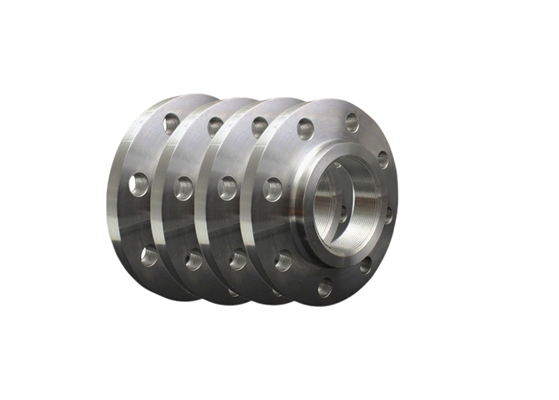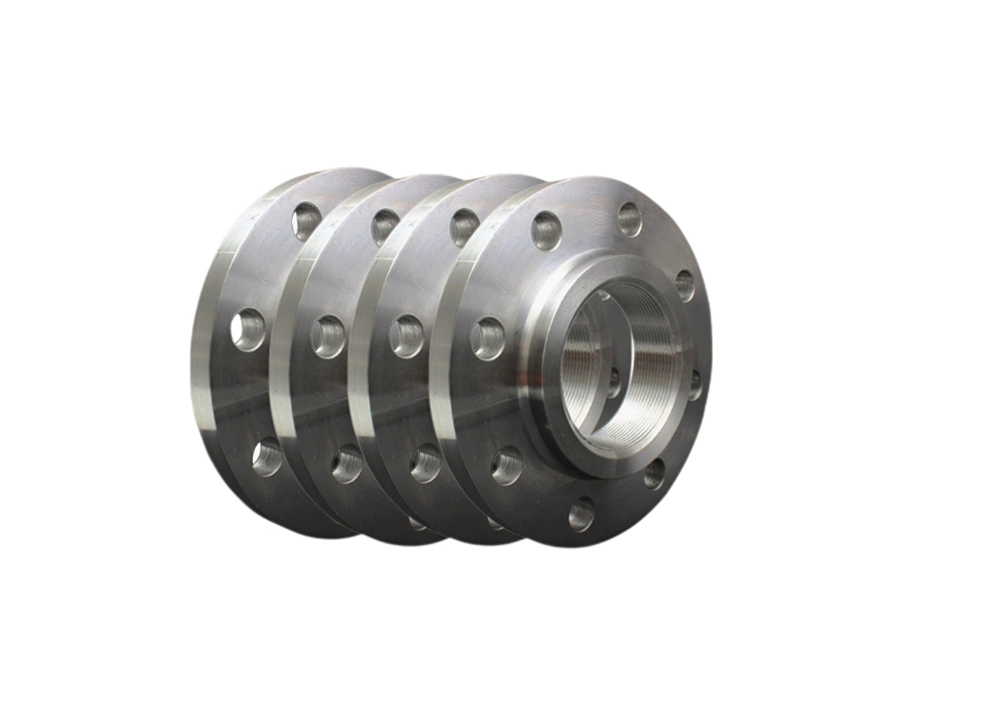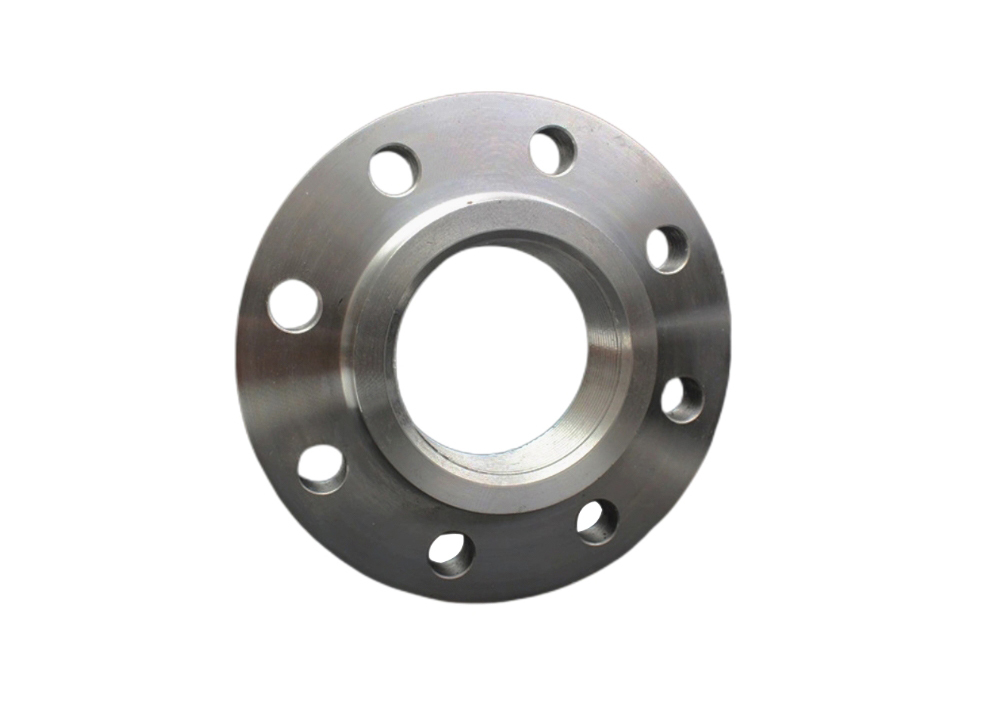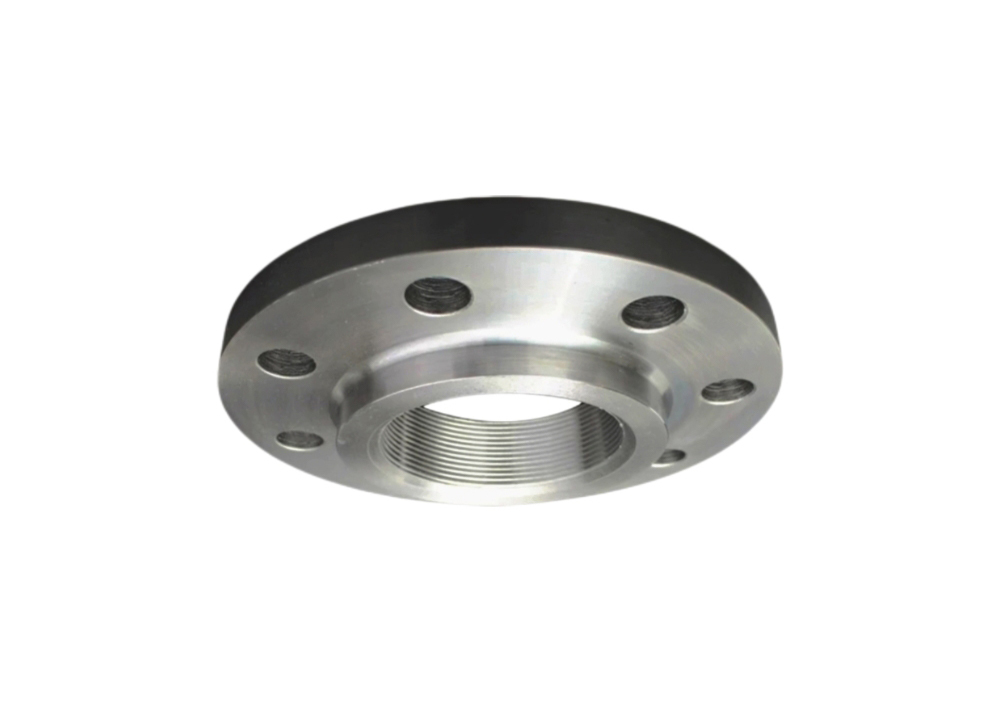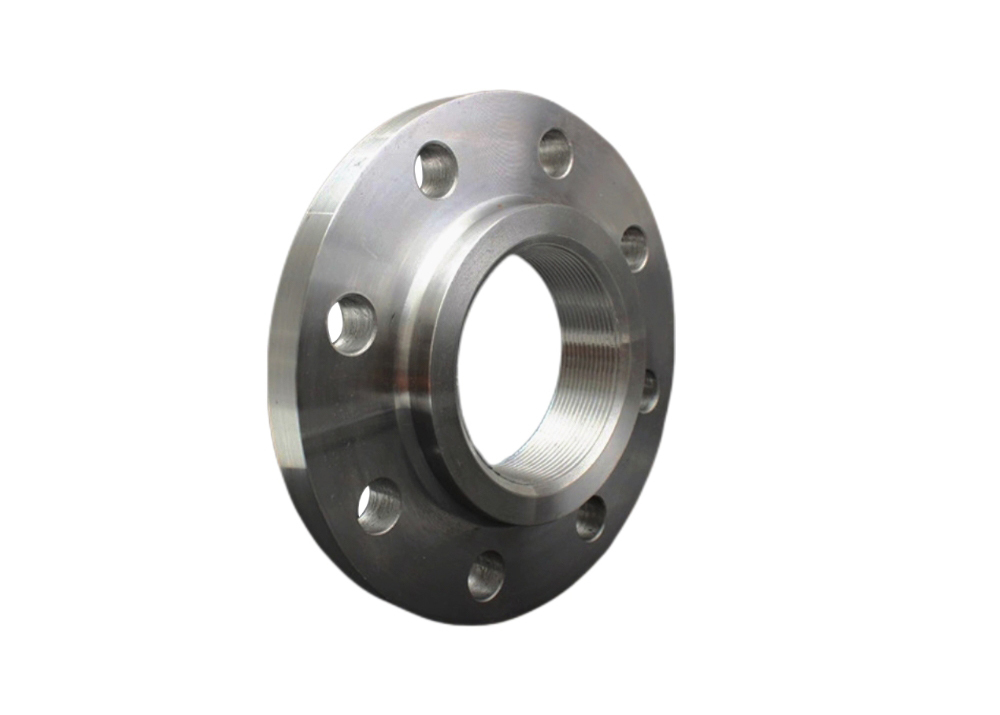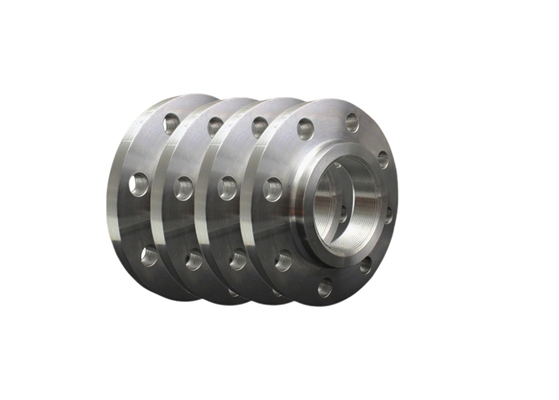
Titanium Class 150 Pipe Fitting Threaded Flanges Used on Pipelines with High Pressure
-
Highlight
Titanium threaded flange Class 150
,Forged titanium RF/FF flange
,Titanium flange NPS 1/2-6
-
Material DesignationTA1,TA2,TA9,TA10,GR1,GR2,GR7,GR12,GR16,N5,N6,N7 Etc.
-
SizeNPS 1/2-NPS 6
-
OEM/ODMAvailable
-
PressureClass 150,Class300
-
TechnicsForged
-
Sealing SurfaceRF,FF
-
Place of OriginShaanxi,China
-
Brand NameVOTECH
-
CertificationASME,ANSI
-
Model Numberclass150
-
Packaging DetailsExport Standard Wooden Case, or Can Be Customized
-
Delivery Time7-15 Days
-
Payment TermsL/C,D/A,D/P,MoneyGram,Western Union,T/T
-
Supply Ability100ton/Month
Titanium Class 150 Pipe Fitting Threaded Flanges Used on Pipelines with High Pressure
Titanium alloy threaded flanges are available in sizes from NPS 1/2 to NPS 6, and custom designs are also available based on customer specifications or drawings. Our titanium flanges are manufactured in strict accordance with ASME international standards to meet the diverse requirements of our global customers.
Titanium threaded flanges are pipe end fittings made of non-ferrous titanium or titanium alloys. They utilize threaded connections rather than welding, using the internal bore of the flange machined to form pipe threads. Advantages include ease of installation and maintenance, and they are suitable for piping systems where welding is not permitted, particularly in low-pressure environments.
Titanium threaded pipe flanges are widely used in piping systems in industries such as chemical processing, petroleum refining, offshore engineering, power generation, pharmaceuticals, and food processing. They are particularly well-suited for handling highly corrosive media such as hydrochloric acid, sulfuric acid, and seawater. Titanium's high corrosion resistance allows it to maintain structural integrity and sealing reliability in harsh environments, significantly reducing maintenance costs and extending equipment life. Furthermore, compared to traditional stainless steel or carbon steel flanges, titanium flanges offer lower weight, making them valuable for high-end applications requiring weight reduction.
- Standard: ASME, ANSI
- Material Designation: TA1, TA2, TA9, TA10, GR1, GR2, GR7, GR12, GR16, N5, N6, N7 etc.
- Size: NPS 1/2-NPS 6
- OEM & ODM: Available
- Pressure: Class 150, Class 300
- Technics: Forged
- Sealing Surface: RF, FF
- Type: Threaded flange
- Packaging: Export standard wooden case, or customized options available
- Application: Petroleum, chemical, shipbuilding, pharmaceutical, metallurgy, machinery, food processing, and related industries
|
Nominal Dimension |
Outer diameter of steel pipe |
Connection size |
Flange thickness |
The large end of the flange neck |
Flange height |
Pipe thread specification Rc or NPT |
|||||
|
DN |
NPS |
Flange outer diameter |
The diameter of the central circle of the bolt hole |
Bolt hole diameter |
Bolt |
The number of bolt holes |
|||||
|
15 |
1/2 |
21.3 |
90 |
60.3 |
16 |
M14 |
4 |
9.6 |
30 |
14 |
1/2 |
|
20 |
3/4 |
26.9 |
100 |
69.9 |
16 |
M14 |
4 |
11.2 |
38 |
14 |
3/4 |
|
25 |
1 |
33.7 |
110 |
79.4 |
16 |
M14 |
4 |
12.7 |
49 |
16 |
1 |
|
32 |
1-1/4 |
42.4 |
115 |
88.9 |
16 |
M14 |
4 |
14.3 |
59 |
19 |
1-1/4 |
|
40 |
1-1/2 |
48.3 |
125 |
98.4 |
16 |
M14 |
4 |
15.9 |
65 |
21 |
1-1/2 |
|
50 |
2 |
60.3 |
150 |
120.7 |
18 |
M16 |
4 |
17.5 |
78 |
24 |
2 |
|
65 |
2-1/2 |
76.1 |
180 |
139.7 |
18 |
M16 |
4 |
20.7 |
90 |
27 |
2-1/2 |
|
80 |
3 |
88.9 |
190 |
152.4 |
18 |
M16 |
4 |
22.3 |
108 |
29 |
3 |
|
100 |
4 |
114.3 |
230 |
190.5 |
18 |
M16 |
8 |
22.3 |
135 |
32 |
4 |
|
125 |
5 |
139.7 |
255 |
215.9 |
22 |
M20 |
8 |
2.3 |
164 |
35 |
5 |
|
150 |
6 |
168.3 |
280 |
241.3 |
22 |
M20 |
8 |
23.9 |
192 |
38 |
6 |
Titanium threaded flanges exhibit exceptional resistance to corrosive media including seawater and chloride ions. Their corrosion resistance significantly surpasses that of stainless steel and carbon steel, making them particularly suitable for marine and chemical industry applications.
No additional protection is needed. Titanium threaded flanges can be used long-term without coatings or cathodic protection, eliminating rust risks and significantly reducing maintenance requirements.
Titanium offers strength comparable to steel with only 60% of the weight. This makes titanium flanges ideal for aerospace and shipbuilding applications where weight reduction is critical without compromising load-bearing capacity.
Titanium flanges maintain excellent toughness in ultra-low temperature conditions (such as liquid nitrogen and liquid oxygen environments), making them perfect for cryogenic engineering applications.
Titanium alloys (such as TA2 and TA9) maintain stable mechanical properties at 300-500°C, with some materials capable of withstanding even higher temperatures for limited durations.
At elevated temperatures, titanium forms a dense oxide surface layer that effectively isolates oxygen and prevents further material oxidation.
In corrosive environments, titanium flanges can last over ten times longer than stainless steel equivalents with minimal maintenance, resulting in significantly lower lifecycle costs.
While titanium flanges have higher upfront costs, their extended service life and minimal maintenance requirements make them more economical over time compared to traditional materials.
Yes. Titanium's non-toxic, biocompatible properties and high material purity meet strict hygiene requirements for pharmaceutical and food processing applications.
Titanium flanges support various welding methods including TIG and plasma welding, producing high-strength welds. They can be designed with flat welding, butt welding, or threaded interfaces to suit different pipeline system requirements.
1.Superior Quality: We employ rigorous quality control measures, including ASME,JIS,DIN,GB ,GOST, ensuring that every
Titanium products we produce meets industry and customer requirements.
2.Modern Production Facilities: We have the most advanced factory and multiple titanium metal production lines, enabling us
to handle bulk orders and customized projects.
3.Logistics and Packaging: Every order is carefully packed in wood cabins or trays to prevent damage during transit, offering
maximum protection and safety.
4.Experienced Team: With years of professional knowledge in titanium metal manufacturing, we understand the nuances of
producing high-quality products to meet the needs of various industries.
5.Comprehensive Service: We offer customized solutions, fast lead times, and dedicated support throughout the purchasing
process.
6.Customer-Centric Services: We offer flexible payment options, comprehensive technical support, and dedicated customer
service to make your purchasing process seamless.

